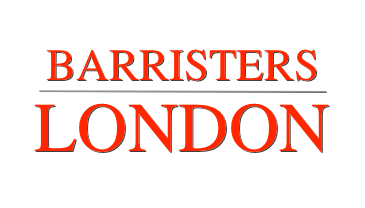Abuse of Professional Position: Legal Considerations
The duties of professionals include not putting themselves in positions where others could criticise their conduct. An abuse of trust is viewed as being especially grave conduct.
Professional personnel, including for example, police officers, healthcare professionals and teachers, who use their position towards members of the public in a manner that is abusive or unethical will undermine their professional standing and that of the wider profession.
Matters such as pursuing a sexual relationship or building a relationship of trust to then take advantage economically or otherwise will generally lead to findings of misconduct.
This kind of misconduct breaches the trust of clients and the organisation that the professional works for, it exploits a power imbalance, is unprofessional and breaches the standards of professional behaviour. Such conduct could also potentially be the commission of a criminal act.
Professionals are required to comply with their Code of Conduct, which sets out the standards expected of them. Any abuse of their position is a breach of the Code and likely to lead to disciplinary proceedings.
In December 2016, The Legitimacy Report highlighted the issue of police officers breaching public trust when developing inappropriate relationships with victims of domestic abuse and other vulnerable individuals. The report stressed the need for a comprehensive national policing response to the problem. Since that time more robust procedures for dealing with miscreant police officers have been put in place.
The General Medical Council, the regulator of medical doctors, states that trust is the foundation of the doctor-patient partnership. And that patients should be able to implicitly trust that their doctor will behave professionally towards them during consultations or otherwise, and not see them as a potential sexual partner. The power imbalance is obvious. The vulnerability of clients is also well understood. The professional (whatever profession they are in) must maintain the boundaries, not the client.
Teachers and all education professionals are in a unique position of trust, care, responsibility, authority and influence with their pupils/students. It is widely recognised that there is always an inherent power imbalance within the teacher-pupil/student relationship. The Education Act 2002 imposes clear duties to provide acceptable levels of care and to protect children and young people from all reasonably foreseeable risk of harm or injury. This includes exploitation by members of staff.
In the case of R ( on the application of G) v The Governors of X School and Y City Council [2009] EWHC 504 (Admin) it was alleged that an incident took place in a local church between the Claimant and person M, who at that time was undertaking work experience at the school. It is said that during the course of the incident, the Claimant kissed M. It is also alleged that, shortly after this date, the Claimant sent two text messages to M, in which he suggested that the two of them might meet up, either at his house or by going for a drive. At a disciplinary hearing the Panel stated, ‘you have behaved in a way which indicates you may be unsuitable for work with children and as such will be reporting your dismissal to the appropriate agencies.’
In another case a nurse accepted gifts from an elderly patient who she had met through the hospital she worked at. She continued to meet with him socially after he was discharged. He contunued to buy her gifts. She was in a mentally poor position and needed a friend who was kind to her. Later, the patients’ relatives discovered the friendship, and the situation about the gifts, and reported the nurse to the Nursing and Midwifery Council (NMC). The NMC investigated the nurse an alleged misconduct.
Things do go wrong on occasions, and professionals do make errors of judgement, because they are unwell or epecially needy, say after a bereavement, and reach out to others. There may be mitigating circumstances in some professionals’ histories. A regulator may be more lenient in relation to some given circumstances in comparison to others. Therefore, good arguments might be mounted to mitigate the historic misconduct.
Our lawyers advise clients who have a wide array of allegations made against them and we do our best to identify helpful evidence. We have had some good results in some cases, where the prospects of success were not necessarily good. Though, all cases turn ont their own facts, it should be added.
If you are a professional facing allegations of abusing a professional position or professional relationship, contact Barristers.London without obligation and in strict confidence to discuss our legal advice and representation services. Our fees are competitve.
Back to Regulatory and Disciplinary Law Page

Request a
Enquiries
